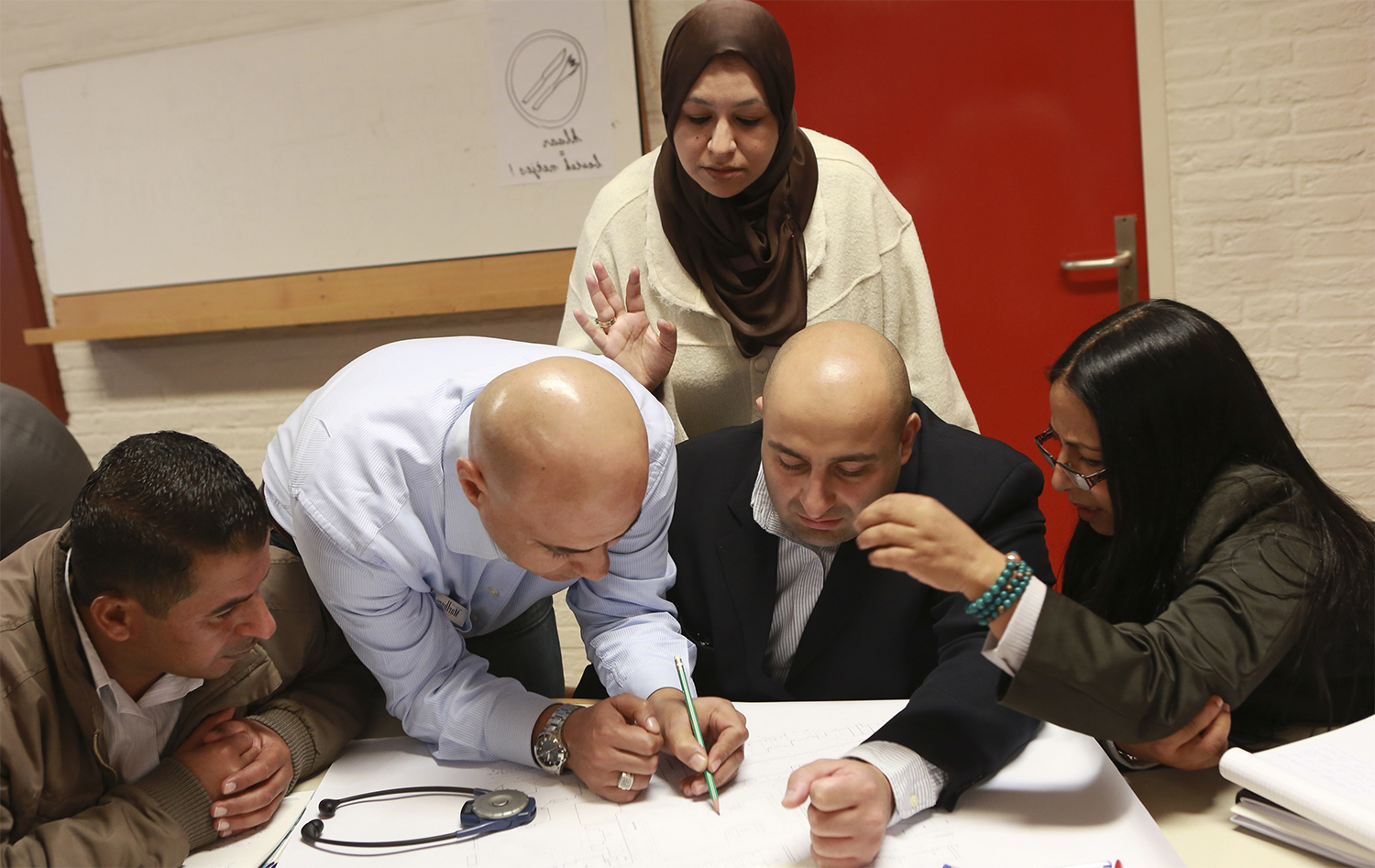
Shiraka Training Programme
The Shiraka Training Programme (STP) is part of the Shiraka Programme, developed by the Ministry of Foreign Affairs. It supports societal development in the MENA region and focuses on governments’ public service delivery for citizens, involving civilians in this process.
Shiraka Training Programme
The Shiraka Training Programme (STP) is part of the Shiraka Programme, developed by the Ministry of Foreign Affairs. It supports societal development in the MENA region and consists of training courses around water management, food safety, public financial management and legislation. STP focuses on governments’ public service delivery for citizens, involving civilians in this process.
The Hague Academy develops and leads training in several core areas. These training courses are designed for mid-career public officials and combine theory, practice, and site visits.

Overview
Shiraka aims to bring about positive change in the MENA region, meaning:
Training Courses
The Hague Academy for Local Governance designs and leads training programmes in various thematic areas:
Social Affairs and Employment
This training focuses on employment opportunities for youth, women, and people with disabilities, as well as employment in the informal sector and the role of local actors in social affairs and job creation. It includes one week of training in Jordan and one week in the Netherlands. For more information, see the course brochure available, in English, French, or Arabic.
For questions about this training programme, please contact shiraka.sae@thehagueacademy.com.
Local Governance
This training focuses on issues of decentralisation, citizen participation, and local development. It consists of a five-week online training, followed by a two-week online refresher and a week-long training in the Netherlands. For more information, see the course brochure now available in English, French or Arabic.
For questions about this training programme, please contact shiraka.lg@thehagueacademy.com.
Water Management
Organised together with Wageningen Environmental Research, this training will focus on the modernisation of water use and modern water governance principles. The first part of the training will be held in the Netherlands, followed by a second part in Oman. For more information, see the course brochure available in English, French or Arabic.
For questions about this training programme, please contact shiraka.wm@thehagueacademy.com.
Ecosystem for Entrepreneurs
The objective of this training programme is to provide civil servants and entrepreneurs with the knowledge and skills needed to create an enabling environment for entrepreneurship in their countries. The first part will be held online, followed by a second part face-to-face in the participants’ own country, and a study trip to the Netherlands. The programme will end with a closing event in the Spring of 2026. This year, the Ecosystem for Entrepreneurs training programme is only open to applicants from Egypt and Oman. For more information, see the course brochure available in English and Arabic.
For questions about this training programme, please contact shiraka.ee@thehagueacademy.com.
Digitalisation of Governments
The objective of this training programme is to provide civil servants with the knowledge and skills needed to design digital transformation strategies to benefit public service delivery and to promote change in the further digitalisation of their ministries, districts or municipalities. The first part will be held in Amman (Jordan) and the second part in The Hague (The Netherlands). For more information, see the course brochure available in English, French and Arabic.
For any questions about this training programme, please contact shiraka.eg@thehagueacademy.com.
Eligibility
Shiraka is limited to government professionals from the following countries:
Funding
Selected candidates will receive a full scholarship to the programme. The Ministry of Foreign Affairs in the Netherlands will cover all relevant costs for participants from countries on the OECD-DAC list. This includes costs for international travel, lodging, visa and insurance, and course tuition fees. Selected participants from countries not on the OECD-DAC list must pay for their own international travel including plane tickets and visas. However, lodging, insurance, and tuition fees for the course will be covered by the Dutch government.
Application
To apply you must first create an account. If you already have an account, then please proceed with the online application form found on this page.



